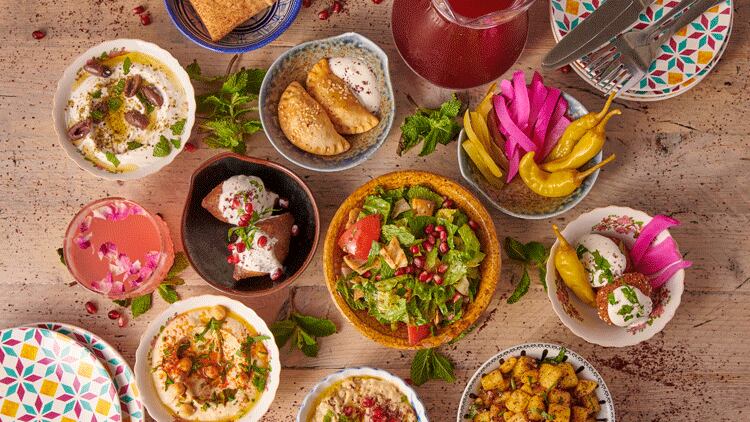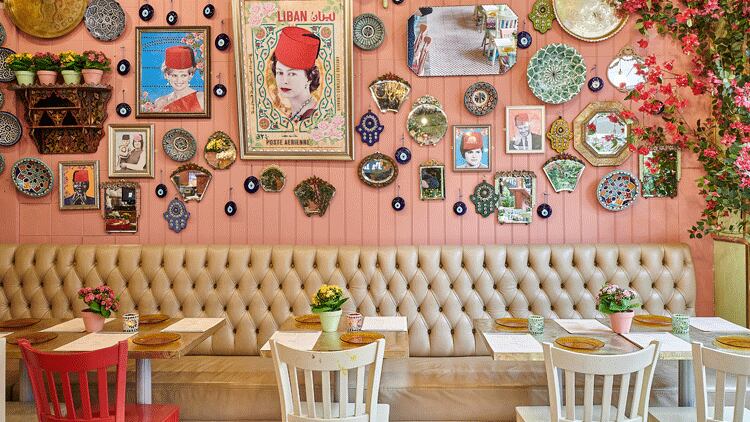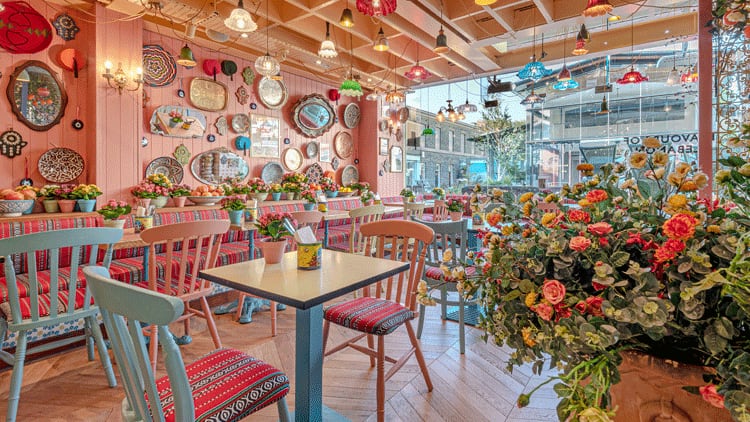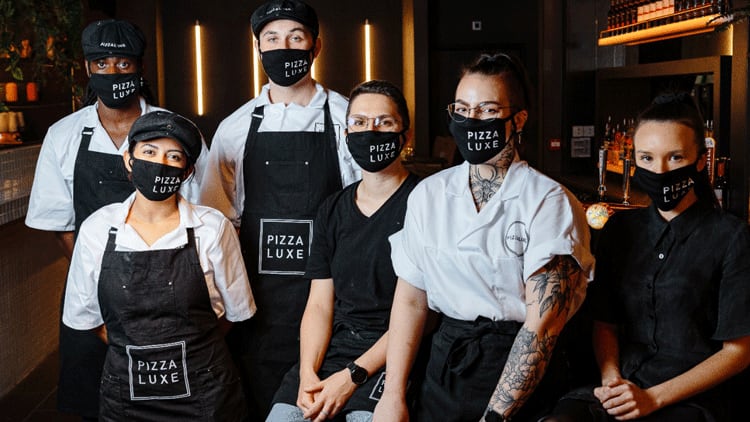On 17 May Lebanese restaurant group Comptoir Libanais reopened fully its company-owned estate, some 21 sites. “But we didn’t call it a reopening,” explains CEO Chaker Hanna. “For us it was about rebuilding our restaurant group from the ground floor up.” Determined to reopen better, Hanna and the business’s founder Tony Kitous spent each lockdown reassessing their group and striving to improve its foundations.
“We started life as a family business, but we’ve now reached a size that requires a change of approach,” says Hanna. “For example, our financial systems were inadequate. Everything has now been fully digitised, which gives us an overview of how the business is performing. We’ve also refitted all of our sites. It’s very important that we reopen looking fresh and relevant.”
Back on the expansion trail
While it remains tough for five or so of the group’s sites in central London, the overall performance of Comptoir Libanais has been strong, all things considered. A constant flow of customers keen to get out and about and willing to spend freely means that a good proportion of the group’s regional sites are doing better numbers than they were in 2019.
Things are looking so healthy, in fact, that Comptoir Libanais is already back on the expansion trail. Hanna and Kitous recently signed on a second site at Westfield London and has an offer on another, as yet undisclosed site. Meanwhile, its franchise partner HMS Host has signed up for a further two new locations.
“If this pandemic has taught us one thing it’s how important relationships are. Without close relationships with the right people - our staff, our landlords, our suppliers and, yes, our bank manager – we would not have made it. To overcome this we’ve all had to work together.”
NatWest head of retail and leisure David Scott believes agile businesses such as Comptoir Libanais are perfectly placed to thrive as the UK recovers from the pandemic. “Many thought we’d be back to normal by now. Clearly that’s not the case, but overall things have been better than we expected in terms of numbers. Good management teams have put great systems in place to keep people safe and have made the necessary changes in their infrastructure to shore up their businesses. They’re now well-placed to acquire tactical new sites.”

Mezze maestros: a selection of Comptoir Libanais dishes
Going mobile
Another key change at Comptoir Libanais is the introduction of a slick new mobile ordering app. Trialled after the first lockdown and now in use throughout the estate, the app has been a huge success. “We have over 50% of customers using it at some of our sites. I’m blown away by how well it has been received,” says Hanna.
The app facilitates mobile ordering in restaurant as well as click and collect. It’s highly functional, allowing customers to order extra items as their meal progresses and settle the bill at the end. The app also made it easier for Comptoir Libanais to comply with Covid-19 regulations.
The introduction of a sophisticated app that has the potential to reduce contact points is a good example of a business speedily pivoting to provide something that’s more useful and relevant to consumers. Another business to have pivoted very effectively is Pizza Pilgrims, another NatWest customer. Faced with a total shutdown of the business in March 2020, brothers Thom and James Elliot launched Pizza In The Post kits that allowed customers to recreate their pizzas at home. The product was a runaway success, with the pair shifting up to 10,000 units per week during lockdown. Though demand is lower since restaurant have been allowed to reopen, the initiative remains an important part of the business.
NatWest believes there is an evolution taking place across retail and leisure, and that consumers will continue to migrate towards business models that are better aligned to their new values. Companies which fail to pivot their business models fast enough will be replaced by those with nimbler strategies and new entrants, the report predicts.
Bespoke apps and refits don’t come cheap, but Comptoir Libanais found itself in a better position than some of its peers due to the strength of its relationship with its landlords. “In most cases it’s a true partner relationship,” says Hanna. “They understood the impact the pandemic was having on us, and we also understood the impact it was having on them.”

Middle Eastern chic: the group's Bluewater site
Changes in customer behaviour
Hanna notes that customer behaviour has changed significantly as a result of the pandemic. “Traditionally the majority of our customers just dropped into our restaurants. But bookings are now through the roof. There is also no longer a big rush at lunchtime and dinnertime, our business is spread much more evenly across the day. Finally, dwell time is much higher. It’s a more leisurely experience for most and people are typically ordering more.”
NatWest’s research identifies four consumer buying behaviour groups, the largest of which indicated that their spending behaviour has been unaffected by the impact of the virus (36%). The second largest group (27%) of consumers expect to ‘revert’ to previous purchasing habits once the impact of the virus recedes. Together, this makes up a majority of households who expect to spend in the same way they did previously once the pandemic eases.
This is positive news for the hospitality sector. Another big positive – the report goes on to say - is that many households have boosted savings due to cancelled holidays, commuting less, having fewer evenings out, and purchasing fewer products. The Bank of England estimated that households in the UK were holding onto over £100 billion of additional savings going into 2021. This cash is now starting to be spent, and the hospitality sector is benefitting greatly.



